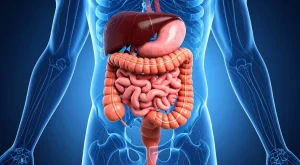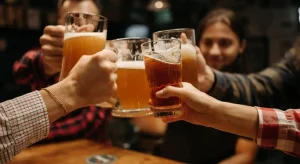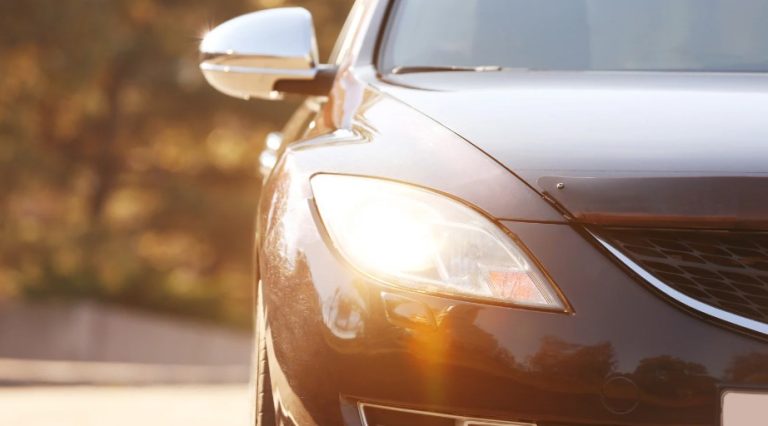Have You Ever Wondered Why Alcohol Sometimes Sends You Rushing to the Toilet?
It’s a surprisingly common experience you enjoy a few drinks one evening, and by the next morning (or even sooner), you’re dealing with sudden and urgent diarrhoea. But why does this happen? Is it the type of alcohol, the amount consumed, or something deeper related to how your body processes alcohol?
Alcohol doesn’t just affect your brain and liver; it has a direct and often disruptive impact on your digestive system.
From speeding up intestinal movement to altering gut bacteria, the effects of alcohol on your bowel movements are real and medically recognised. This article explores the physiological reasons behind alcohol-induced diarrhoea, looks at who is more vulnerable, and provides practical solutions for prevention.
How Does Alcohol Disrupt Normal Digestive Function?

When alcohol enters your body, it begins to influence digestion almost immediately. Its presence in the stomach can trigger an increase in gastric acid production, which not only irritates the stomach lining but also disturbs the entire digestive process.
The irritation caused by alcohol continues into the small and large intestines, where it increases muscle contractions a phenomenon known as enhanced gut motility.
This rapid movement of stool through the intestines means that the colon has less time to absorb water, resulting in stools that are looser, more frequent, and often urgent. In essence, alcohol can function like a laxative, pushing waste through the system faster than normal.
The Chain Reaction in the Gut
| Digestive Reaction | Impact on Bowels |
| Increased gut motility | Stool moves too quickly through intestines |
| Reduced water absorption | Stools remain watery and loose |
| Stomach lining irritation | Leads to inflammation and urgency |
| Elevated stomach acid | Triggers discomfort and bowel sensitivity |
These combined effects help explain why diarrhoea after drinking isn’t just a fluke it’s often a direct response to what alcohol does inside your digestive tract.
Why Does the Type of Alcohol Matter in Causing Diarrhoea?
Not all alcoholic beverages affect the gut equally. Some drinks contain higher levels of sugar, carbonation, or additives, all of which can exacerbate digestive upset.
For example, beer, with its high carbohydrate and gluten content, can be particularly hard on the stomach for those who are sensitive or intolerant.
Wine contains tannins and sulphites that may trigger inflammation or allergic-like reactions in the gut. Mixed drinks and cocktails, which often include sugary syrups or carbonated mixers, can increase bloating and diarrhoea due to the osmotic effects of sugar pulling water into the intestines.
Clear spirits like vodka and gin, especially when consumed with plain water or soda, tend to have fewer irritants. However, even these can be problematic when consumed in excess or on an empty stomach.
What Is the Role of Sugar and Additives in Alcoholic Drinks?

One of the most overlooked factors contributing to alcohol-related diarrhoea is the sugar content in many drinks.
Sugar, particularly when consumed in large amounts or in the form of simple carbohydrates, can draw water into the intestines. This is known as an osmotic effect and is a well-documented cause of diarrhoea.
Cocktails are among the worst offenders. Drinks like mojitos, daiquiris, and premixed alcoholic beverages can contain as much sugar as a can of fizzy drink.
Artificial sweeteners such as sorbitol or xylitol common in low-calorie mixers, are also known to have a laxative effect, especially in people with sensitive stomachs or irritable bowel conditions.
In addition to sugar, many alcoholic beverages contain preservatives, sulphites, colouring agents, and flavour enhancers.
Each of these additives can irritate the lining of the digestive tract, particularly in individuals with sensitivities or allergies.
How Does Alcohol Cause Inflammation in the Gut?
Alcohol is a known pro-inflammatory substance. Even in small amounts, it can inflame the delicate lining of the stomach and intestines.
In chronic drinkers, this inflammation may develop into more serious conditions such as gastritis or alcoholic gastroenteritis, but even occasional drinking can cause short-term inflammation that disrupts digestion.
Inflammation reduces the gut’s ability to absorb nutrients and water, increases intestinal permeability (commonly referred to as “leaky gut”), and sensitises the bowel, making diarrhoea more likely.
The risk is even higher in individuals with existing digestive conditions. For example, someone with Irritable Bowel Syndrome (IBS) may find that alcohol exacerbates symptoms like cramping, urgency, and loose stools.
In cases of Inflammatory Bowel Disease (IBD) including Crohn’s disease and ulcerative colitis, alcohol can significantly worsen inflammation and potentially lead to flare-ups.
Can Alcohol Intolerance Lead to Digestive Distress?
Yes, alcohol intolerance is another important factor that can lead to diarrhoea after drinking.
This condition occurs when the body lacks the enzyme aldehyde dehydrogenase, which is needed to properly break down alcohol.
Without this enzyme, toxic by-products build up quickly in the body, leading to a range of symptoms including flushing, nausea, headaches issues, and diarrhoea.
Even a single drink may trigger symptoms in someone with alcohol intolerance. Unlike alcohol allergy, which is rare and often severe, alcohol intolerance is relatively common and can develop over time.
If you find that you react poorly to alcohol regardless of the type or amount, it may be worth discussing with a healthcare professional to rule out intolerance or other digestive issues.
Does Dehydration from Alcohol Contribute to Diarrhoea?
Alcohol acts as a diuretic, meaning it increases urination and promotes fluid loss. This not only leads to dehydration but also reduces the amount of available water in the colon, affecting stool consistency.
When the body is dehydrated, it tries to conserve water except in the case of alcohol-induced diarrhoea, where the increased gut motility overrides this mechanism.
The result is a double effect: fluid is lost through both urine and watery stool.
Rehydration is key. Drinking water alongside or between alcoholic drinks can help, as can rehydrating thoroughly the next day with electrolyte-rich fluids or oral rehydration salts, especially if diarrhoea is prolonged.
Are Certain People More Vulnerable to Alcohol-Related Diarrhoea?
Certain groups are more likely to experience diarrhoea after drinking alcohol. These include:
- People with digestive disorders: IBS, IBD, gastritis, and coeliac disease can all be aggravated by alcohol.
- Individuals with food intolerances: Lactose intolerance, fructose malabsorption, or gluten sensitivity may be worsened by ingredients in alcoholic drinks.
- Those with alcohol intolerance: As discussed, a genetic inability to process alcohol properly can lead to GI symptoms.
- People who consume alcohol on an empty stomach: Without food to buffer alcohol absorption, the gut is more vulnerable to irritation and inflammation.
Understanding your personal triggers is vital. If beer upsets your stomach but spirits don’t, or if cocktails consistently lead to diarrhoea, adjusting your choices can help you enjoy alcohol without digestive consequences.
How Can You Prevent Diarrhoea After Drinking Alcohol?

Preventing alcohol-induced diarrhoea starts with awareness and moderation. While not everyone will experience symptoms, those who do can benefit from practical steps to reduce the impact on the gut.
Here are a few strategies:
- Eat a balanced meal before drinking to slow alcohol absorption and protect the stomach lining.
- Stay well-hydrated before, during, and after alcohol consumption.
- Avoid drinks high in sugar, carbonation, or artificial sweeteners.
- Limit alcohol intake and pace your drinks throughout the evening.
- Monitor your body’s reactions to different types of alcohol to identify personal triggers.
If symptoms persist despite these precautions, it may be time to evaluate your overall alcohol consumption and consider whether certain drinks should be avoided altogether.
When Should You Seek Medical Advice for Alcohol-Related Diarrhoea?
Occasional diarrhoea after drinking is typically not a cause for concern. However, persistent symptoms could indicate a more serious condition. You should speak to your GP if you experience:
- Diarrhoea lasting more than 48 hours
- Blood in the stool
- Severe abdominal pain or bloating
- Weight loss or fatigue
- Frequent digestive symptoms even after minimal alcohol intake
A doctor may recommend diagnostic tests such as stool analysis, food intolerance testing, or endoscopy to determine if underlying gastrointestinal issues are at play.
Frequently Asked Questions About Alcohol and Diarrhoea
Can diarrhoea start within hours of drinking alcohol?
Yes, especially if you’ve consumed alcohol on an empty stomach or are sensitive to certain ingredients.
Does switching to clear spirits reduce the risk of diarrhoea?
For many, yes. Clear spirits like gin or vodka with plain mixers are less likely to contain irritants like sugar or gluten.
Why do sugary cocktails cause more stomach upset?
The high sugar content draws water into the intestines and can act as a laxative, especially when combined with alcohol.
Is diarrhoea always due to alcohol, or could it be the food eaten while drinking?
Sometimes it’s both. Greasy or spicy foods commonly eaten with alcohol can also trigger digestive distress.
Can regular alcohol use cause long-term gut damage?
Chronic drinking can lead to persistent inflammation, poor nutrient absorption, and increased risk of gastrointestinal diseases.
What’s the best drink choice for sensitive stomachs?
Dry white wine or clear spirits with soda water are usually better tolerated than beer or sweet cocktails.
Should I avoid alcohol completely if I have IBS?
Not necessarily, but it should be limited. Some people can tolerate certain types in moderation.






